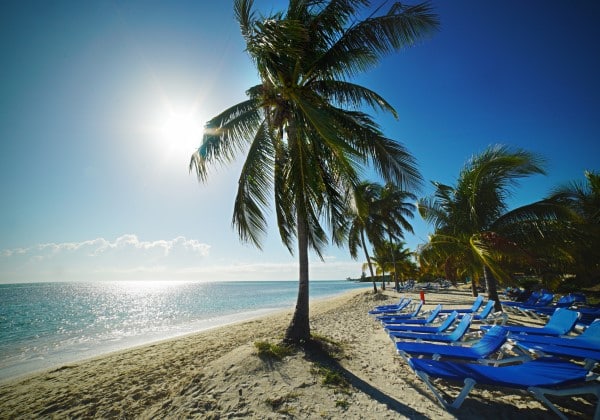
Countries with low taxes are appealing choices for those aiming to maximize their income and benefit from a favorable fiscal climate. These locations provide a compelling combination of economic benefits, modern amenities, and expat-friendly policies.
In this article, we will examine some of the most attractive low-tax nations for expats, outlining their advantages and what makes them perfect destinations for individuals looking to reduce their tax obligations while embracing a vibrant and rewarding life abroad.
Low Tax vs Tax-Free Countries
Tax-free countries and low-tax countries may seem similar, but they have distinct differences. Both types of jurisdictions seek to attract businesses and individuals through favorable tax policies, yet they vary in the scope and nature of the tax benefits they offer.
As the name suggests, tax-free countries are places where certain taxes, such as income tax, corporate tax, capital gains tax, or inheritance tax, are either non-existent or extremely minimal.
Often known as tax havens, these countries, like Monaco, the Cayman Islands, and the Bahamas, provide an environment where individuals and corporations can legally reduce or eliminate their tax burdens. They are recognized for their strict banking secrecy laws and are popular for offshore banking and financial services.
On the other hand, low-tax countries do impose taxes, but at significantly lower rates compared to high-tax jurisdictions. These countries offer competitive tax rates to attract foreign investment, businesses, and wealthy individuals.
The tax structure in low-tax countries is tailored to be attractive, but it does not entirely eliminate tax obligations. Instead, it reduces them to more manageable and less burdensome levels. Examples of low-tax countries include Ireland, Singapore, and Hong Kong.
Best Low-Tax Countries for Expats
Greece

One major incentive is the new tax regime for foreign retirees, allowing eligible individuals to benefit from a flat tax rate of 7% on their worldwide income for up to ten years. This is especially appealing for retirees who want to enjoy their pensions in a sunny and culturally rich environment.
For non-retired expats, Greece offers a relatively moderate personal income tax system with progressive rates through the Greece Golden Visa.
Recent reforms also introduced a non-dom regime that provides a flat tax of €100,000 per year on global income for wealthy individuals relocating their tax residence to Greece. This regime can also cover family members for an additional €20,000 per person, making it an appealing option for high-net-worth individuals and their families.
The corporate tax rate in Greece is currently 24%, with potential plans for reductions to stimulate business investments further. Greece’s strategic location at the crossroads of Europe, Asia, and Africa makes it an excellent base for international business operations.
Aside from the financial benefits, Greece offers a high quality of life with its stunning landscapes, Mediterranean climate, and rich cultural heritage. The cost of living is generally lower than in many Western European countries, making it a budget-friendly option for expats.
Greek healthcare is also of good quality, with both public and private options available, and the country has a growing number of international schools catering to expatriate families.
Greece’s mix of tax incentives, beautiful environment, and affordable living costs, along with its friendly and welcoming culture, make it an increasingly popular destination for expats seeking both financial and lifestyle benefits.
Malta

This program is especially advantageous for high-net-worth individuals and retirees looking to manage their tax obligations while enjoying a sunny and relaxed environment. Another option is the Maltese Exceptional Investor Naturalization (MEIN) visa.
Malta’s corporate tax system is also favorable for businesses and entrepreneurs. The country utilizes a full imputation system, resulting in a significantly reduced tax burden on distributed profits.
Although the standard corporate tax rate is 35%, shareholders can claim a refund of up to six-sevenths of the tax paid, which can lower the effective tax rate to as low as 5% in certain cases. This makes Malta an attractive location for international companies and startups.
In addition to its favorable tax policies, Malta offers a high standard of living with a relatively low cost compared to other Western European countries.
The nation provides a comprehensive healthcare system, with both public and private options. It also has an excellent education system, including several international schools that cater to the expatriate community.
Malta’s strategic location in the Mediterranean provides easy access to Europe, North Africa, and the Middle East, making it a convenient base for business and travel.
The country is renowned for its rich history, vibrant culture, and welcoming atmosphere. Its official languages are Maltese and English, with English widely spoken and used in business and administration, facilitating the transition for foreign residents.
The island’s pleasant climate, beautiful beaches, and numerous historical sites offer a high quality of life and plenty of recreational opportunities.
Malta’s dynamic expat community and the government’s proactive approach to attracting foreign residents make it an appealing destination for those seeking both financial benefits and a rewarding lifestyle.
Ireland

For individuals, Ireland has a progressive personal income tax system, with rates ranging from 20% to 40%. Additionally, the country provides tax incentives for certain professionals, such as the Special Assignee Relief Programme (SARP) and the Research and Development (R&D) Tax Credit for businesses engaging in innovative activities.
Ireland has an extensive network of tax treaties with over 70 countries to prevent double taxation, which is advantageous for expats with global income sources or assets. One of the fastest routes to living in the country is through the Irish Golden Visa.
Beyond its tax benefits, Ireland offers a high standard of living with excellent public services, healthcare, and education. The country is known for its vibrant culture, rich history, and scenic landscapes, offering a fulfilling lifestyle.
Major cities like Dublin, Cork, and Galway offer cosmopolitan living and friendly, close-knit communities.
Ireland’s education system is highly regarded, with numerous international schools catering to the expatriate community. Higher education institutions in Ireland are also renowned for their quality.
The healthcare system in Ireland is a mix of public and private services, providing high-quality medical care accessible through the Health Service Executive (HSE), and private health insurance is widely available.
Ireland’s strategic location as a gateway to Europe, combined with its strong transport links, makes it an excellent base for business and travel.
The country’s friendly and welcoming atmosphere, coupled with its commitment to innovation and economic growth, makes Ireland a top choice for expats seeking professional opportunities and a culturally immersive living experience.
Zero Income Tax Countries
Countries with the lowest or no taxes, like the UAE, Monaco, the Bahamas, Bermuda, and the Cayman Islands, offer significant financial advantages for expats.
These destinations provide tax-free or low-tax environments, attracting high-net-worth individuals and businesses seeking to maximize their wealth while enjoying luxurious and high-quality lifestyles.
Monaco

Situated on the Mediterranean coast, Monaco offers a luxurious lifestyle with stunning scenery, upscale shopping, and cultural events. The principality provides excellent healthcare, education, and security, making it an ideal location for families.
Although the cost of living and real estate is high, Monaco’s tax advantages and glamorous lifestyle appeal to those seeking financial benefits and an exclusive, picturesque environment.
Bahamas

The Bahamas offers natural beauty with stunning beaches and clear waters, combined with a relaxed lifestyle. The country provides excellent healthcare and education options, particularly in Nassau and Freeport.
While the cost of living can be high, the tax benefits and tropical environment make the Bahamas a desirable location for those seeking both financial advantages and a serene, luxurious lifestyle.
Vanuatu

Vanuatu taxes do not include personal income tax, capital gains tax, inheritance tax, or corporate tax, making it highly appealing to individuals and businesses aiming to reduce their tax obligations.
Vanuatu’s natural beauty, featuring breathtaking beaches, verdant landscapes, and vibrant coral reefs, offers an idyllic setting for a laid-back lifestyle. The country boasts a relatively affordable cost of living compared to other tax-free jurisdictions, along with a relaxed and welcoming atmosphere.
Additionally, Vanuatu offers various residency programs, including the Vanuatu Citizenship by Investment program, which allows foreign nationals to obtain citizenship and take advantage of the country’s tax benefits.
Although healthcare and education options may not be as extensive as those in more developed countries, Vanuatu’s allure lies in its peaceful environment, favorable tax system, and the chance to embrace a unique, tranquil way of life in one of the world’s most stunning island nations.
St. Kitts and Nevis

The islands’ Citizenship by Investment Program is one of the longest-established and most reputable globally. It allows individuals to obtain citizenship through real estate investment or a contribution to the Sustainable Growth Fund, adding further appeal for those looking to establish a base in a tax-friendly jurisdiction.
St. Kitts and Nevis boasts a high quality of life with beautiful beaches, lush landscapes, and a pleasant tropical climate. It provides excellent healthcare and education services, and English is the official language, making it easier for expats to settle in.
The cost of living is relatively moderate compared to other Caribbean destinations, and the islands’ well-developed infrastructure supports a comfortable lifestyle.
With its combination of tax advantages, natural beauty, and welcoming environment, St. Kitts and Nevis is an ideal destination for expats looking to enjoy a relaxed, financially beneficial lifestyle in a picturesque setting.
How Can Global Citizen Solutions Help You?
Global Citizen Solutions is a boutique migration consultancy firm with years of experience delivering bespoke residence and citizenship by investment solutions for international families. With offices worldwide and an experienced, hands-on team, we have helped hundreds of clients worldwide acquire citizenship, residence visas, or homes while diversifying their portfolios with robust investments.
We guide you from start to finish, taking you beyond your citizenship or residency by investment application.

Frequently Asked Questions About Low-Tax Countries
What is personal income tax?
Personal income taxes are taxes imposed on an individual’s earnings, which include wages, salaries, bonuses, interest, dividends, rental income, and other types of income.
The rates and regulations for personal income tax vary widely from country to country and are usually progressive, meaning that the tax rate increases as the taxpayer’s income rises.
This tax is a primary source of revenue for governments and is utilized to finance public services such as healthcare, education, infrastructure, and social security.
Does foreign income affect personal tax?
When it comes to foreign income, the treatment of such income in personal income tax systems can be quite complex and depends on the tax laws of the individual’s home country as well as any relevant international agreements or treaties.
Taxation on foreign income often depends on whether an individual is considered a tax resident or non-resident in their home country. Generally, tax residents are taxed on their worldwide income, while non-residents are typically taxed only on income sourced within the country.
Which countries do not tax US social security?
Several countries do not tax US social security benefits, making them attractive destinations for American retirees. This can be due to specific tax treaties with the United States or local tax laws that exempt such foreign income.
Under the US-Canada tax treaty, US social security benefits received by residents of Canada are subject to favorable tax treatment.
Generally, only 85% of the benefits are taxable by the US, and Canada taxes them at a reduced rate. This ensures that double taxation is minimized and that the total tax burden remains reasonable for retirees.
Portugal offers significant tax benefits for foreign retirees under its Non-Habitual Resident (NHR) regime. While the regime provides various tax advantages, US social security benefits specifically are exempt from Portuguese taxation under the US-Portugal tax treaty.
This makes Portugal a highly attractive destination for American retirees looking to enjoy a European lifestyle with favorable tax treatment.
What country has the highest corporate income tax?
The country with the highest corporate income tax rate is the United Arab Emirates (UAE), specifically in certain sectors.
While the UAE is renowned for its tax-free environment, this applies largely to personal income and many business sectors. However, the UAE imposes a corporate tax rate of up to 55% on foreign banks and oil companies.
This high rate is unique to these industries and does not reflect the tax environment for most other businesses operating in the UAE.
For most other sectors, the UAE maintains a zero corporate tax policy, making it an attractive destination for a wide range of international businesses.


